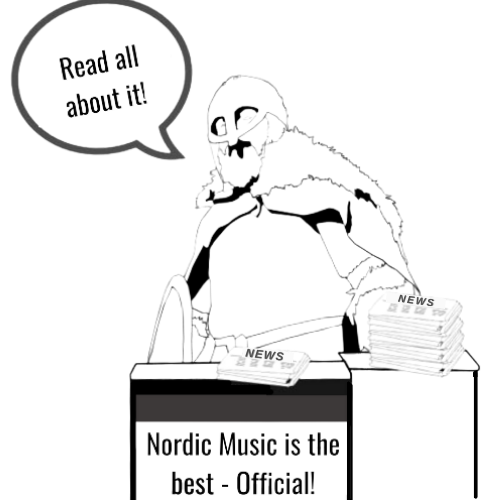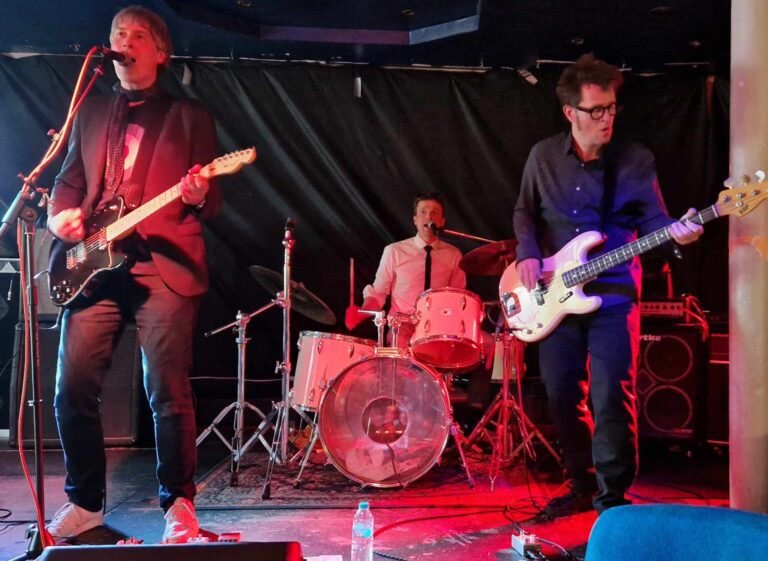I had a nosy through some of the reviews I’ve previously written about Mansfield over the last couple of years, which amount to three singles, including one from an EP.
There are more reference points there – some theirs; some mine, than there are in a scientific paper presented to the Royal Institution by Stephen Hawking, including the 1960s Mersey Sound, Britpop (notably the Manchester version, the rest is a little blurred if you’ll pardon the pun), Morrissey, The Libertines, U2, Herman’s Hermits and Motown!
(And just as a matter of passing interest I see I felt obliged too to make a mention of Oldham’s finest, the astrophysicist Dr Brian Cox of D:Ream, who played live keyboards for that band, and who bears more than a passing resemblance to Mansfield’s writer/singer/guitarist Christian Stage.
D:Ream were famous for ‘Things can only get better’ in 1994, which the Labour Party adopted as its slogan for the 1997 General Election and – hey presto! – it has been resurrected for the one just called in the last few days).
I’ve rambled on a bit about these influences because what Mansfield amounts to is a potted history of contemporary British music over the latter half of the 20th century. The influences are so diverse that you’d think they were in danger of creating a monster, a musical equivalent of the creature made up of a goat, a pig and a chimpanzee that was intended to scare off property developers in the 1990s black TV comedy ‘The League of Gentlemen’.
In fact what they created should ultimately become an exhibit in a museum of contemporary history, or perhaps a vinyl version of this second album, ‘For all the right reasons’, should be included in one of those packages we occasionally blast into space for the delectation of inquisitive aliens living light years away, as a précis of the music of several Earth eras.
None of that is to say that any of Mansfield’s work is derivative. The underlying stylisation is there for sure but their product is unashamedly all theirs. They aren’t so much re-writing these eras as redefining them.
And ‘For all the right reasons’ is a veritable cornucopia of delights, from the opening chord of ‘Let’s stop pretending’, an identikit version of the equivalent on ‘A hard day’s night’ to the metronomic Ringo-style percussion in ‘Chasing after you’ to the Oasis-like chords of ‘Someone Else’ to the socially observant and Hollies-reminiscent ‘London Riots’ and the charming, orchestrated break-up ballad ‘A world without you’, which could be the follow up to Peter & Gordon’s Lennon/McCartney masterpiece ‘A world without love’’.
Then there’s ‘Dreams of desire’, with a guitar/bass riff you won’t be able to get out of your head, the heavier and more serious ‘The nature of a troubled mind’ with what sound like Morrissey-inspired lyrics, and the sing-along, anthemic and sharply titled ‘The sky’s in love with you’, which I’m sure must be a pun on Herb Alpert’s classic!
But we aren’t finished yet.
I thought they’d hired Liam Gallagher to sing ‘Tales of everyday life’, a song that might have just missed the cut on ‘Definitely maybe’, except that it’s definitely better.
There is no option not to listen to ‘No is not an option’, a thumping no-nonsense rocker more in keeping with the Stones and which includes the guitar shredding I would have liked to hear a little more of.
Then, unexpectedly, they slow it right down into a pensive, reflective ballad with lyrics more typical of Elbow in the ultimate track ‘The safest place’.
Theirs is the clear-cut sound and diction so typical of the 60s especially, none of the mumbled jumbo you all too often get these days and there is a definable melody in every single song. I can only think of one other band that manages that in all the almost 10 years I’ve been writing reviews…and they’re a metal band!
As for filler; that’s for fixing cracks in walls.
Their USPs could fill a resume on their own: smooth, simple and memorable tunes; short bridges that offer only a small variation from the main melodies; selective, expressive orchestration to the same standard as the Beatles; and meaningful lyrics that never cross the Rubicon into ‘pretentious’ territory.
To top it all there’s the distinctive vocal of Christian Stage, one that if it was played in a pub or BBC radio show quiz as a ‘voice of the 60s’ would bring forth a vast range of suggestions of big names it might belong to, and none of them from Denmark.
I could cruise all day between Manchester and Liverpool and back again on the M62 or the East Lancs Road listening to this album on repeat. It’s a living history book of UK pop-rock wrapped up in a Danish pastry all the way from Copenhagen.
I reckon there’s a potentially huge market for a revival of these eras, again. I saw that the American songstress Weyes Blood was majorly influenced by The Hollies, a band whose heyday was a couple of decades before she was born.
How many in the future will be influenced by Mansfield I wonder? Discuss.
8/10
Mansfield is:
Christian Stage: vocals, acoustic & electric guitars, mellotron, keyboards & percussion.
Mathias Havelund: guitars & percussion.
Mathias Wedeken: bass, orchestral strings & vibraphone.
Filip Gulløv: drums, piano on track 3, percussion & backing vocals.
Additional musicians:
Anders Holm Mortensen: brass section on track 4.
Jóhanna Hugadóttir, Elisabeth Bak Cedermann, Rose Gunilla Ekstrand & the band Caper Clowns: backing vocals on track 11.
Find them on:
Website: http://www.mansfield.dk/
Facebook: https://www.facebook.com/Mansfieldband
Instagram: https://www.instagram.com/mansfieldcph/




